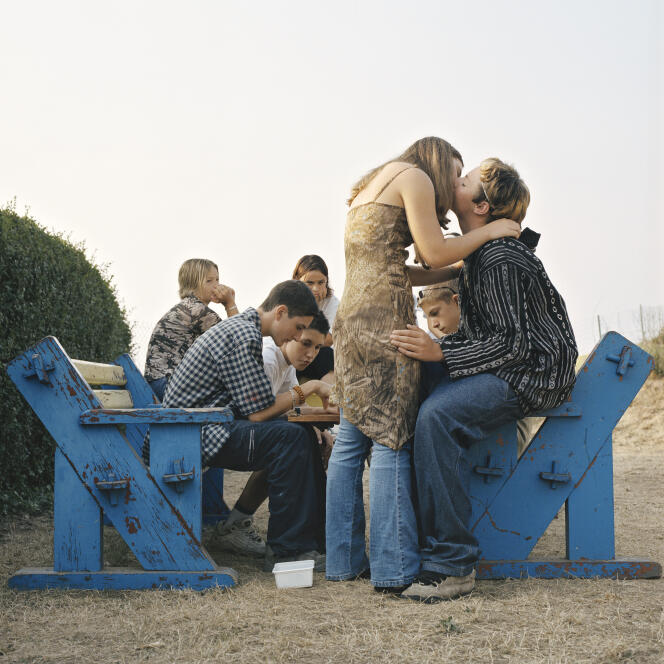


In American TV series, teenagers experience their first romantic stirrings at the beach, between water fights and chasing around in the sand. In Paris, they gather at the ice rink to try to meet new people. From Paris to Marseille, via Chambray-lès-Tours in Indre-et-Loire, boys aged 15 to 17 talk about their relationship with flirting and love.
Rachid (some people requested anonymity), 17, with chubby cheeks and a sweater featuring the manga hero Naruto, had arranged to meet his high school friends in the 19th arrondissement of Paris. With white headphones in place, they put on their skates, jostled each other and spotted girls their own age doing laps of the rink, even engaging in a "rock-paper-scissors" tournament to decide who would have the task of approaching the one with the ponytail in the blue sweatshirt. When talking to each other about their relationship with the opposite sex, the boys in the group, all heterosexual and single, feigned a certain self-confidence and peppered their sentences with a frankly reductive vocabulary. There were "the ones who everyone's been with" and "the friends' exes," who "we don't hit on."
When talking to Rachid face-to-face, other issues arose. "It's difficult to please girls, to know what they like, it's never the same thing. Some think it's ridiculous to show your feelings, others like it because it creates intimacy," said the high-school student with the long eyelashes and bleached curls. Rachid has hardly ever talked about his sexual and emotional life with his parents: "My mother is pretty modest; she just told me: 'Be careful, don't have children too young'," he said.
Like most of his friends, the teenager learned a few things about consent during information sessions at school and at the social center he attends after school. "It's basic, I work on the principle that if the person hasn't made it clear that they agree, nothing will happen," said Rachid. "For me, you shouldn't be too forward. When I find a girl attractive, I try to joke around with her first and compliment her on her clothes. I try to analyze her expression, wondering whether she sees me in the same way as I see her," he said.
How has the approach to seduction changed among teenagers after #MeToo? Have the expectations around masculinity truly shifted in high school environments, as the very queer representations in series like Sex Education (Netflix, 2019-2023) and Euphoria (HBO, since 2019) might suggest? The sixth report on the state of sexism in France, published in January by the High Council for Equality between Women and Men (HCE), once again reaffirmed the fact that sexist attitudes persist among young men. Accordingly, 40% of respondents aged 25 to 34 believe that you shouldn't show your emotions to gain respect as a man, with 23% admitting to being involved in at least one instance of non-consensual behavior.
You have 74.8% of this article left to read. The rest is for subscribers only.
